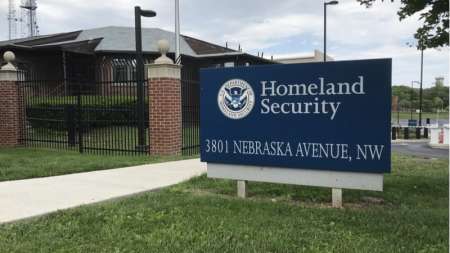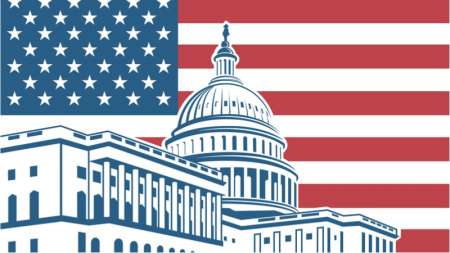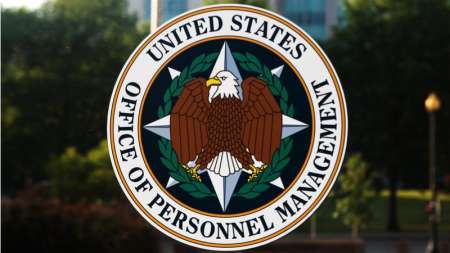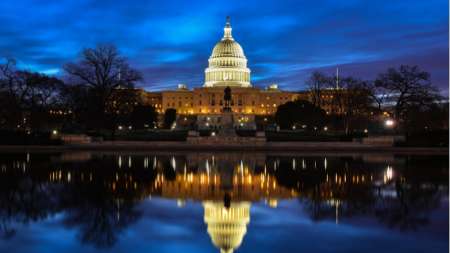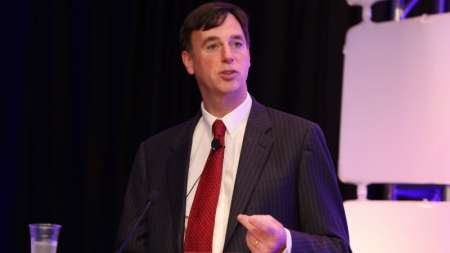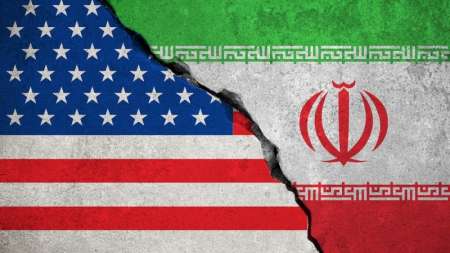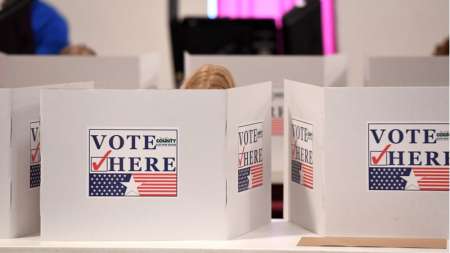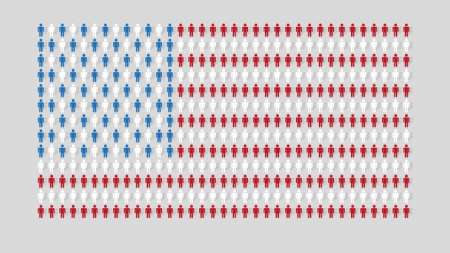Senior officials from the Departments of Defense (DoD) and Homeland Security (DHS) told House members on Wednesday that they are busy working out details of a recently finalized cybersecurity coordination agreement focused on improving Federal government cyber defenses generally, and specifically the cyber defenses of critical infrastructure components on which DoD facilities rely, among other areas. […]
Fraudsters are using the U.S. Postal Services’ (USPS’) Informed Delivery service to perpetrate a multitude of identity theft and credit card fraud schemes, according to an alert the Secret Service sent its law enforcement partners on Nov. 6. […]
The House late Tuesday approved long-pending legislation that authorizes the Department of Homeland Security to reorganize its existing National Protection and Programs Directorate (NPPD) in order to create a new component agency–the Cybersecurity and Infrastructure Security Agency–within DHS. […]
With a new session of Congress–and a power shift in the House–looming in January, big tech companies are looking toward 2019 and possible new privacy legislation that will alter the shape of their business models. […]
In a report released today, the Government Accountability Office (GAO) said the Office of Personnel Management (OPM) has yet to implement a full one-third of GAO’s information security recommendations issued to OPM in recent years. […]
Two House subcommittees will convene a hearing tomorrow, Nov. 14, at 3 p.m., to hear officials from the Departments of Defense (DoD) and Homeland Security (DHS) discuss how the two agencies cooperate on cybersecurity issues. […]
The ability of adversaries to attack in cyberspace with low consequence creates the need to impose friction and leads to the tenants of defending forward and continuous engagement with adversaries in cyberspace espoused in the National Cyber Strategy and the Department of Defense (DoD) Cyber Strategy, said Rob Joyce, senior adviser for cybersecurity strategy to the Director of the National Security Agency (NSA). […]
The United States, Russia, and China did not sign the Paris Call for Trust and Security in Cyberspace, a global cyber pact, released Tuesday at Paris Peace Forum by French President Emmanuel Macron. […]
The National Science Foundation, on behalf of the interagency Networking and Information Technology Research and Development National Coordination Office, is looking to update its Cybersecurity Research and Development plan, last published in 2016. […]
A new report released today from One Identity found that Federal agencies lack basic elements of cyber hygiene. The study, conducted by Dimensional Research and sponsored by identity and access management (IAM) solutions provider One Identity found that “while agency leaders recognize IAM’s importance, the majority of agencies have yet to fully adopt recommended guidelines into their cybersecurity program and some even feel their current approach distracts from agency missions.” […]
As Federal agencies seek to incorporate an application programming interface (API) strategy into their IT modernization initiatives, a word of caution: make sure you have API-specific security integrated into your IT infrastructure. […]
The Aspen Cybersecurity Group (ACG), which was formed last year by the Aspen Institute think tank to “translate pressing cybersecurity conversations into action,” has issued several policy recommendations to bolster the security of internet of things (IoT) devices including suggesting that device manufacturers invest more in building in better security, and that manufacturers be held accountable for the security of devices that they make. […]
The North Korean hackers known as Lazarus Group are now stealing from ATMs to the tune of tens of millions of dollars, according to research Symantec released Thursday. […]
Synack, a crowdsourced security testing firm, announced Thursday the launch of its Synack Veterans Cyber Program which will “recruit, empower, and deploy veterans in the cybersecurity industry.” […]
The Global Commission on the Stability of Cyberspace (GCSC)–a group formed last year to promote international stability by developing policy proposals and norms to guide responsible state and non-state behavior in cyberspace–on Thursday issued a set of six global norms that the group hopes will promote “the peaceful use of cyberspace.” […]
Following President Trump’s proclamation of November as National Critical Infrastructure Security and Resilience Month, Secretary of Homeland Security Kirstjen M. Nielsen released a statement on Wednesday saying she and DHS are “committed to strengthening our efforts to protect and secure the infrastructure on which Americans rely, in close partnership with other Federal agencies, state, local, territorial and tribal governments, and the private sector.” […]
The National Cybersecurity Center of Excellence (NCCoE), a partnership of the National Institute of Standards and Technology (NIST) and the state of Maryland, is seeking public comment by Dec. 6 on a draft report (NISTIR 8219) detailing cybersecurity guidance aimed at the manufacturing sector that employs industrial control systems to monitor and control physical processes. […]
A report from the Carnegie Endowment for International Peace released Wednesday found that “harnessing the full potential of cyber insurance will be imperative for preventing systemic cyber incidents of concern for governments and the private sector alike.” […]
The Department of Homeland Security (DHS) Science and Technology Directorate (S&T) announced today that it issued $1,272,320 of funding awards to develop new solutions to “improve the capability of organizations to understand and improve their cybersecurity control investment decisions.” The funding will be split between University of California, San Diego and University of Illinois, Chicago. […]
The demand for cybersecurity professionals is growing, according to data published Wednesday on CyberSeek, a free online resource from the National Institute of Standards and Technology (NIST), Burning Glass, and CompTIA. […]
The United States is finally making no bones about its willingness to go after adversaries in cyberspace. […]
On Nov. 5, the United States implemented sanctions against Iran, which the Treasury Department described as the “largest ever single-day action targeting the Iranian regime.” While the sanctions were ostensibly targeting Iran’s growing nuclear program, the Foundation for Defense of Democracies (FDD), a think tank which vacillates between nonpartisan, hawkish, and neoconservative in terms of its political leanings, argued in a report released Tuesday that the United States should be concerned about the cybersecurity implications of the new sanctions. […]
Cybersecurity firm Morphisec said that 63 percent of 1,000 Americans that it surveyed in late October regarded the threat of “adversaries propagating misinformation on social networks” as a “more significant threat” to the U.S. midterm elections than possible cyber attacks against voting infrastructure. […]
Wisconsin Gov. Scott Walker last Friday requested that Maj. Gen. Donald Dunbar, adjutant general of Wisconsin, put the state’s National Guard cyber response teams on standby ahead of the midterm elections. […]
A majority of surveyed U.S. information and technology professionals–86 percent–are concerned about the public sector’s ability to conduct secure, reliable, and accurate elections, according to a new study from ISACA released today. […]
A new report from the Commerce Department Office of the Inspector General (OIG) determined that the Census Bureau must improve the implementation of its risk management framework. […]
In a memo dated Oct. 24, Secretary of Defense James Mattis established the Protecting Critical Technology Task Force (PCTTF) to protect the Department of Defense’s (DoD) “critical technology.” The task force will work to prevent the loss of classified and controlled unclassified information–the loss of which is “putting the Department’s investments at risk and eroding the lethality and survivability of our forces.” […]
How can the U.S. deter adversaries and impose costs on enemies launching cyberattacks against the country? With new strategies and policies opening up room for more aggressive responses, the best defense just might be a good offense, Federal cybersecurity leaders discussed Thursday. […]
Freedom House’s annual report on internet freedom, entitled “Freedom on the Net” and released today, finds that global internet freedom is on the decline for the eighth consecutive year. […]
The Department of Homeland Security (DHS) is focusing intently on a range of activities to help ensure the security of next week’s mid-term congressional elections, DHS officials said today at an event organized by Fifth Domain. […]



